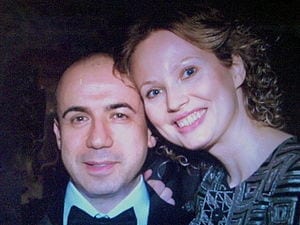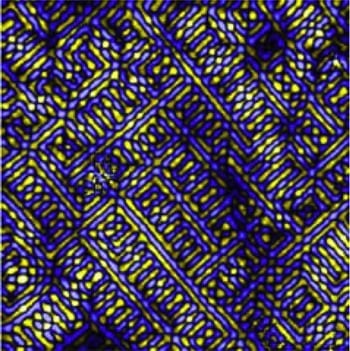
Silicon Valley hosts lavish ceremony for Breakthrough prize that aims to give scientists celebrity status and inspire interest in life’s ‘big questions’
Silicon Valley has a tendency to tackle social ills with big ideas, its feisty startups revolutionising everything from healthcare to education. Now a handful of billionaire engineers have turned their attention to a social blight that affects their own kind: the lack of appreciation (and funding) for scientists.
The second Breakthrough prize for life sciences is being awarded on Thursday at Nasa’s Ames Research Centre in Mountain View, California, about a five-minute drive from the headquarters of Google. It will probably be the most lavish awards ceremony that its six winning scientists have ever been to.
Actor Kevin Spacey is expected to host, while comedian Conan O’Brien and actor Glenn Close will make presentations. Organisers hope for the whole event to be televised, and the six prizes will be worth $3m (£1.83m) – each. This is among the most lucrative awards in science, almost triple the size of the Nobel prize, and bigger than the $1.7m Templeton prize. It’s expected to be bigger and bolder than the last similar ceremony, held on 20 March 2013 in Geneva, Switzerland, where Morgan Freeman hosted and Sarah Brightman sang.
It’s like the “Oscars of science”, says Yuri Milner, the wealthy technology investor behind it all. Once upon a time Milner was himself a physics major at Moscow State University, but he ended up dropping out and embracing the world of tech investing instead. In 2009 he steered one of the first big funding rounds in Facebook, before putting money behind Groupon, Zynga, Twitter and Airbnb and picking up a host of new contacts and street cred in Silicon Valley. In 2011 Forbes magazine valued him as a billionaire.
The following year, he launched his original Fundamental Physics prize and bestowed $3m on Alan Guth, a physics professor at MIT who conceived the idea of cosmic inflation and the early rapid expansion of the universe. Guth’s bank account reportedly zoomed up from $200 to $3,000,200 after organisers deposited his prize. There was a $12 wire transfer fee, but he probably didn’t mind paying that.
In the past year, Milner has invited some of his billionaire friends in the Valley to stump up money for the prize too, and in what he says are roughly proportional slices: Google’s Sergey Brin, Facebook’s Mark Zuckerberg and Alibaba founder Jack Ma have agreed to join him in contributing $7m annually to both prizes. The four men are worth nearly $52bn combined, according to the latest estimates by Forbes magazine, and Milner suggests with a chuckle that their commitment to annually funding the award won’t wane any time soon. All winners are also obliged to be on a committee to judge the next year’s nominees, which is why the first round of winners of the Breakthrough prize was the biggest: 11 scientists took home a total of $33m.
Both the Breakthrough prize and the Fundamental Physics prize seem to be Milner’s attempts to remain instrumental in the field that intrigued him all those years ago, and bestow riches unknown among even its biggest luminaries. His reasoning is that the public puts an unhealthy emphasis on figures in the world of entertainment and sport, while fundamental science gets neglected.
“It’s not a good thing for society at large,” he says. “There was a time when people like Einstein were well known and recognised by the public. They had a lot of influence.” A lack of collective interest in fundamental science means people don’t think as much about “the big questions” of life and the universe as they could. “What is the universe? What is energy, matter, the stuff of life? Where did they come from, how do they work?” The ideas posed as answers, he says, can be “unifying”.
“Instead, we focus on the very short-term problems that have an immediate impact on our lives,” Milner says. He says British theoretical physicist Paul Dirac‘s prediction of the existence of positrons and his relativistic quantum mechanical equations were among the key breakthroughs that led the field of technology ultimately to build semiconductors, create computers and the whole of Silicon Valley. To Milner’s undoubted chagrin, far more people in Silicon Valley itself probably know about David Beckham than Dirac.
The Latest on: Science prizes
- Views askew: An unusual prize and ionized wordson April 26, 2024 at 5:00 pm
The German Chemical Society has put out a call for nominations for the Mario Markus Prize for Ludic Science. The award, which comes with a €10,000 (a little more than $10,000) purse, is given “for an ...
- SBA announces winners of 2024 Growth Accelerator Fund Competitionon April 26, 2024 at 11:49 am
Discover the winners of the 2024 Growth Accelerator Fund Competition recently announced by the Small Business Association and learn how their innovative strateg ...
- TARC and Kentucky Science Center Announce Design-a-Bus Winnerson April 26, 2024 at 10:53 am
TARC in partnership with the Kentucky Science Center have announced the 12 winners of the 24th annual Design-a-Bus contest. The theme in 2024 is "The Periodic Elements of Louisville." The bus will ...
- Stars and Scientists Converged to Celebrate the 10th Breakthrough Prizeon April 25, 2024 at 11:40 pm
The Breakthrough Prize, held a star-studded awards ceremony on April 13th to honor luminaries in science and mathematics.
- Aditya Kunjapur awarded BII & Science Prize for Innovationon April 25, 2024 at 8:24 am
Indian American scientist wins the prize for work toward building a better platform for possible future bacterial vaccines ...
- TARC, Kentucky Science Center announce winners of 24th annual Design-a-Bus conteston April 25, 2024 at 8:12 am
These 12 winners will have their artwork displayed on a TARC bus that will be operating throughout Louisville for the next year.
- Interswitch reaffirms commitment to STEM education, raises national science contest prize money to N30mon April 24, 2024 at 8:31 pm
The integrated payment and digital commerce company, Interswitch group, has reaffirmed commitment to promoting and supporting the study of science, technology, engineering and mathematics (STEM) ...
- State Science and Technology Fair of Iowa Announces 2024 Winnerson April 24, 2024 at 1:34 pm
In celebration of the 67th year, more than $200,000 in scholarships and prizes were awarded, including scholarships from each Iowa Regent school. The top overall winners will attend the Regeneron ...
- Science: Prizewinners on Secrecyon April 22, 2024 at 9:30 pm
Is the progress of science in the U.S. being held up by unnecessary secrecy? To find out, Missouri Democrat Thomas C. Hennings Jr., chairman ...
- Elon Musk on the Challenge of Artificial Intelligence @ Breakthrough Prize the ‘Oscars of Science’ | WATCHon April 16, 2024 at 4:13 pm
The 10th Breakthrough Prize in LA mixed glitz and intellect, likened to the "Science Oscars." Elon Musk delved into AI challenges.
via Bing News
The Latest on: Breakthrough prize
- Stars and Scientists Converged to Celebrate the 10th Breakthrough Prizeon April 25, 2024 at 11:40 pm
The Breakthrough Prize, held a star-studded awards ceremony on April 13th to honor luminaries in science and mathematics.
- Elon Musk on the Challenge of Artificial Intelligence @ Breakthrough Prize the ‘Oscars of Science’ | WATCHon April 16, 2024 at 4:13 pm
The 10th Breakthrough Prize in LA mixed glitz and intellect, likened to the "Science Oscars." Elon Musk delved into AI challenges.
- Kim Kardashian, Margot Robbie and Elon Musk Hit the 10th Annual Breakthrough Prize Red Carpet | Photoson April 15, 2024 at 1:37 pm
Kim Kardashian, Margot Robbie, Jessica Chastain and Michelle Yeoh were just a few of the Hollywood A-listers who turned out for Sunday's 10th annual Breakthrough Prize. The so-called "Oscars of ...
- Katy Perry and Orlando Bloom make stylish appearance at Breakthrough Prize ceremonyon April 15, 2024 at 10:36 am
Katy Perry and Orlando Bloom were among the stars who attended the 10th annual Breakthrough Prize Ceremony at the Academy Museum of Motion Pictures in Los Angeles.
- Stars align for ‘Oscars of science,’ Yuri Milner’s 10th annual Breakthrough Prize Ceremonyon April 14, 2024 at 6:09 pm
The night’s emcee, James Corden, cleverly quipped, “The only agent being thanked tonight will be hydrogen cyanide.” ...
- Katy Perry in Coperni, Margo Robbie in Rick Owens and More Stars at Breakthrough Prize Awards 2024 Red Carpeton April 14, 2024 at 12:02 pm
Several of the celebrities in attendance implemented color, pattern, texture and shine into their looks to make a statement.
- Robert Downey Jr., Kim Kardashian, Katy Perry and more stars celebrate 10th Breakthrough Prizeon April 14, 2024 at 11:18 am
Stars like Robert Downey Jr, Kim Kardashian, Katy Perry and many, many more honored achievements in math and science at the 10th annual Breakthrough Prize.
- Adam Levine and Behati Prinsloo Stun on Red Carpet at Breakthrough Prize Ceremonyon April 14, 2024 at 11:09 am
Adam Levine and Behati Prinsloo were all smiles on the red carpet of the Breakthrough Prize Honors Ceremony.
- Stars Who Arrived at the 2024 Annual Breakthrough Prize Ceremonyon April 14, 2024 at 6:59 am
In case you missed it, the 10th Annual Breakthrough Prize Ceremony arrived and the internet can’t stop talking about the ensembles! Unofficially known as the “Oscars for scientists,” so many stars ...
- Kim Kardashian, Elon Musk: Breakthrough Prize Red Carpet Photoson April 14, 2024 at 3:57 am
Hollywood's biggest stars walked the red carpet at the Breakthrough Prize ceremony in Los Angeles on Saturday night.
via Bing News









